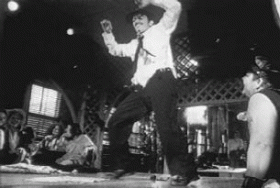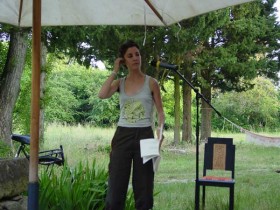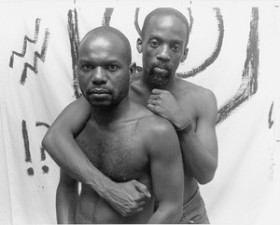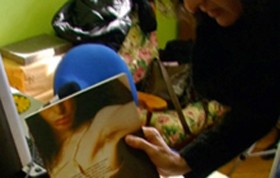This essay is situated at the intersection of two trajectories of critical thought: feminism and post-workerism. In the displacements brought about by feminism, it seeks to grasp the need to rethink the categories of the critique of political economy. The feminism to which I am referring here is essentially that which reconfigured itself following its confrontation with the homosexual and post-colonial movements—a feminism that I will call transfeminism, using a term borrowed from Beatriz Preciado—that is, a feminism that is a thinking of and a political experimenting with multiplicity. I am joining the other trajectory, postworkerism, essentially at the level of the developments that have resulted from the contributions of Maurizio Lazzarato, Christian Marazzi, Yann Moulier Boutang, Antonio Negri and Carlo Vercellone over the past dozen years—their effort to rethink labor, social cooperation, the wage and income today. Despite the different paths followed by these authors, their analyses converge on one essential point: what is emerging from the metamorphoses of capitalism is a new relationship between capital and life, which Christian Marazzi calls “the biopolitical turn of the economy.” Michael Hardt and Antonio Negri speak of “biopolitical labor,” meaning labor that produces not “just material goods but social life itself.” Knowledge, know-how, language and affect are the fundamental stakes in production today, and they imply a new nature of labor within a categories that feminism has brought about, particularly the displacement of the categories of production and reproduction. Consequently, I want to ask the following questions: Can the category of labor as developed since Marx encompass all the forms that human activity can take? Can the category of living labor still resist once the divisions that subtend it—body/mind, culture/ nature, man/woman—are called into question? Is the separation between living labor and dead labor pertinent, or has the infinite extension of living labor, the displacement of binary divisions such as living labor/ dead labor or productive labor/unproductive labor, instead reached the point where it has become quite unstable, and as a result, inoperative? I will explore this vast worksite by following a little path that is as surprising as the one that links its two figures: the lesbian and the intermittent worker or the “non-jobless unemployed” [non chômeur-non employé].
-
Recent Posts
Categories
Monica Treut: Virgine Machine (1990)

Dorothee, a would-be writer and journalist, who leaves Germany for the Oz of San Francisco, searching for her long-lost mother and a cure for the malady of love...
Dalila Kadri: Lucioles (2004)

The film opens a space for understanding the lives of lesbians from France’s ex-colonies, and deals with the lesbians’ resistance, their fight against racism, sexism, and lesbophobia in France today...
Marlon Riggs: Tongues Untied (1990)

Using poetry, personal testimony, rap and performance (featuring poet Essex Hemphill and others), Tongues Untied describes the homophobia and racism that confront Black gay men in USA...
Marina Gržinić/Aina Šmid: Relations. 25 years of the lesbian group ŠKUC-LL, Ljubljana (2011)

This documentary video film is about the 25 anniversary of the lesbian group ŠKUC-LL (1987-2012) and about the lesbian movement in former Yugoslavia. It is a project that visualizes, and define the context for the movement and of the LGBTQ community within and with relation to politics, economics, culture, arts and legal institutional structures...
Muestra Marrana: Renueva tu imaginario pornográfico

un evento de regularidad difusa (mínimo una al año) sin ánimo de lucro y totalmente gratuito, autogestionado y autofinanciado. Su principal objetivo es mostrar producciones audiovisuales relacionadas con sexualidades marginales y/o subversivas...
Journals
Film Festivals
Film Archives
Exhibitions
Networks